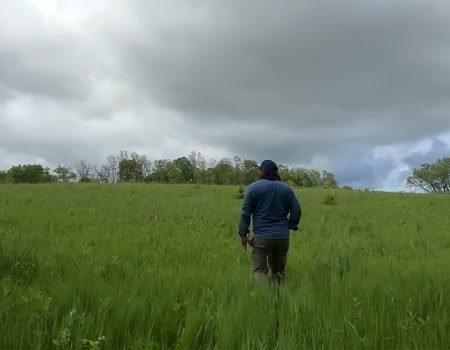Into The South, Part 3
I burst through the doors of Fame Studios like a deer in headlights: wide-eyed, disoriented, and out of breath.
I’d stumbled through a side door just seconds prior, and been rebuffed and redirected by a cluster of young, handsome, chain-smoking rock ‘n rollers.
I blew unwittingly past the studio’s matriarch, Linda Hall, beneath a hand-painted sign that read “Through these doors walk the finest musicians, songwriters and producers in the world,” and past four walls of framed and signed headshots: Aretha Franklin, Otis Reading, Wilson Pickett, Dinah Washington, and Greg Allman.
I pushed through the entrance of Studio A, straight into a group of tourists gasping and guffawing at the legendary space.
“… And this is Aretha’s Franklin’s Wurlitzer,” a guide said. “This instrument is on every hit Fame ever produced!”
“You got a reservation?” one of the tourists asked. I laughed, and said, “I do,” shimmied past the group, and up the stairs to the control room where my pal, Jason Walsmith, was teaching the band a new song.
Just a few hours east of Memphis, and south from Nashville, Alabama’s Quad Cities – Muscle Shoals, Sheffield, Tuscumbia and Florence – sprawl forth from the banks of the Tennessee River like low, gray kudzu. There, at the crossroads of Appalachian, Creole, country, rhythm and blues cultures, Alabama native Rick Hall built a musical empire and sonic aesthetic that launched hundreds of careers and sold millions of records.
For nearly sixty years, the studio and publishing company have been a breeding ground for legends in the worlds of songwriting and session work, and home to some of the greatest musicians and recording artists of all time: Aretha, Etta, Otis.
The Studio doesn’t so much appear as emerge gratefully as a break from relentless miles of nameless, faceless strip malls.
This is Tennessee Valley Authority territory, a Low Country of cotton, peanuts and soybean fields, overgrown hollows and riverbanks damned and engineered to provide Depression-era electricity for all.
It is not a town in a hurry. It is a place moved by the steady rhythm of tides and seasons, the rise and the fall of bait, and the drone of locusts.
Like RCA Studio B in Nashville or Abbey Road in London, the room itself is magical: purpose-built for great live sound and excellent isolation. And it’s a time warp: the studio is all shag carpet, wood-paneling, and soundproofing — plus a collection of some of the finest vintage instruments, amps and mics on the planet.
Moreover, there is a uniquely workaday approach to recording here. S essions players are part of a cohesive, consistent, colorblind and agnostic crew – The Swampers, in Muscle Shoals – who serve but one master: The Song.
“That’s one thing that’s not negotiable in Muscle Shoals,” Session Music Director, Swamper and guitarist, Will McFarlane, told me. And he knows: Will toured with with Bonnie Raitt and Jackson Brown before settling in Muscle Shoals twenty years ago.
It works like this.
A demo recording (in my case, an iPhone Audio Memo) is charted using a Nashville numbering system that quickly and easily annotates the progression, crescendos, breakdowns, starts and stops.
Each song begins with a quick discussion around the mixing board. And then we go in the studio to figure it out. We’re playing within two minutes, and recording within five. We typically got our take in less than twenty minutes.
And though I came with a bundle of songs ready to record, I surrendered to the Swampers, and the spirits, ghosts and ancestors of the South to choose and color mine.
In the end, I tracked five in just two days, including two songs that were just a few hours old.
The first, “Living Without Your,” blends Elvis’ sadness, Loretta’s heartbreak and Johnny’s resolve.
“This morning when I woke up,” it begins, “and finished last night’s beer, I remembered that we broke and began to disappear.”
The other brand-new song was inevitably and unsurprisingly, inspired by a waitress from Tyler, Texas. The verses are a hymn, really: a cautionary list of challenges, pitfalls and problems that beset us all on our respective journeys.
“The road to Heaven isn’t paved with a song,” it warns, “But this is right where you belong.”
“Friends & Neighbors” is a Wagner Brothers production. Please download on Apple, stream on Spotify; watch on Facebook or YouTube; and subscribe to our newsletter at friendsandneighborsshow.com.



